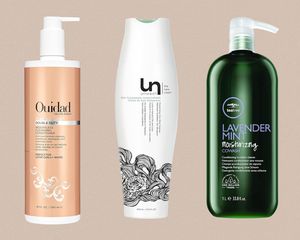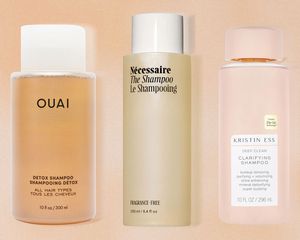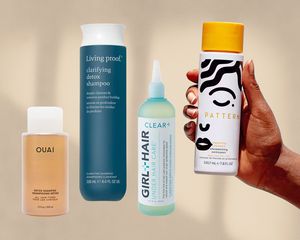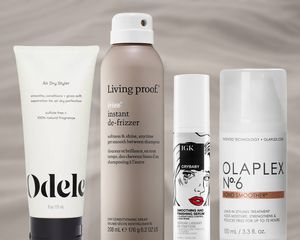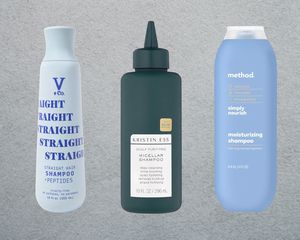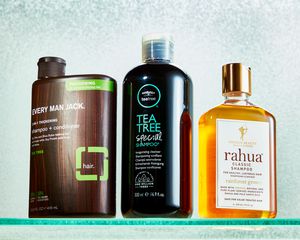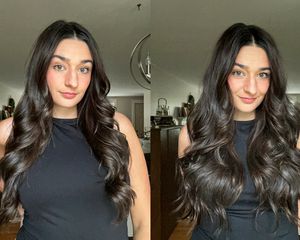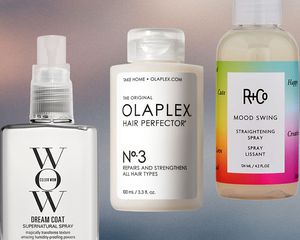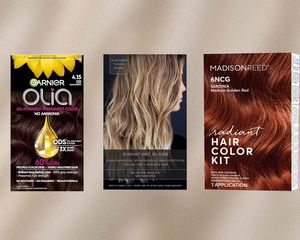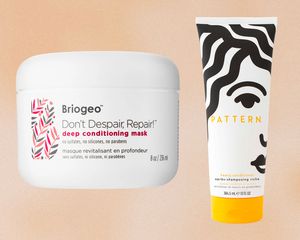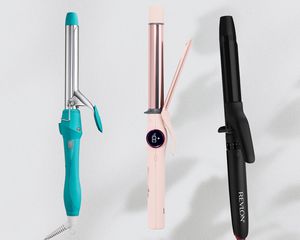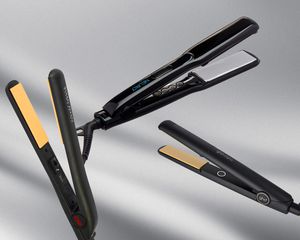:max_bytes(150000):strip_icc()/shampoo-0a8be142bde84f4d91b166aaa38441a6.png)
Stocksy
The question of how often we should all be washing our hair doesn't exactly come with a one-size-fits-all answer. In fact, it has to do with everything from the type of hair you have (dry, oily, thick, thin) to the kind of climate you live in. But to help us get some insight on how we should go about shampooing our hair, we turned to a few experts. Ahead, dermatologists Dr. Iris Rubin and Dr. Mona Mofid and hairstylist Cassandra Olivia answer the most common questions about shampoo and detail exactly how often you should wash your hair.
Meet the Expert
- Dr. Iris Rubin is a dermatologist and the founder of SEEN Skin & Hair Care.
- Dr. Mona Mofid, MD, FAAD, is a dermatologist, diplomate at the American Board of Dermatology, and serves as a medical director at the American Melanoma Foundation.
- Cassandra Olivia is a professional colorist and hair stylist.
How Often Should You Shampoo Your Hair?
How often you shampoo your hair really depends on you and your hair. "There are no strict rules about how often you should wash your hair," says dermatologist Iris Rubin. "Many factors come into play, including how oily your scalp is, your hair type, and if you engage in strenuous exercise that causes you to sweat (and in turn requires more frequent washing)."
Rubin continues: "There is no rule of thumb for everyone. In general, finer, straighter hair needs to be washed more often than thicker, textured hair. Those with curly hair may wash 1-3 times weekly or less frequently. Curls need moisture, so washing too frequently can be drying. Naturally drier or chemically treated hair may also need to be washed less often to minimize over-drying the hair. And if you have an oily scalp or finer, thinner hair, you may need to wash more frequently, possibly daily."
How Should You Shampoo Oily Hair?
If you have oily hair, it's okay to wash it daily if you use a mild shampoo—and a good conditioner after every wash. Rubin recommends those with oily hair look for a shampoo without heavy oils, like SEEN Shampoo. "After shampooing, your other hair care steps can help address specific concerns," says Rubin. "Those with oily scalps can opt for a lightweight conditioner."
If possible, you can stretch the time between washes by using dry shampoo. But if you have oily hair and work out, you may feel more comfortable just washing your hair daily.
How Should You Shampoo Dry Hair?
"Drier hair can use a more hydrating conditioner (such as SEEN's Deeper Conditioner)," says Rubin." Those with a dry scalp can also benefit from a balancing scalp serum (such as SEEN Restore Scalp Serum) that balances the scalp microbiome, soothes the skin, and helps reduce the appearance of flakes associated with dry scalp."
Dr. Mofid says those with exceptionally dry hair or scalp "might experience scaling, which is actually oil buildup." In those cases, she adds, "they need a good regular scrub with a shampoo that has salicylic acid or pyrithione zinc to help remove the buildup. The tar shampoos tend to be a bit smelly, so people don't care for them, but they do work. Several have added menthol, which gives a cooling 'anti-itch' sensation."
Is It Ever a Good Idea Not to Shampoo?
Recent years have seen an uptick in proponents of the "no-poo" and the "low-poo" movements. Some people never shampoo their hair, and they swear their hair has never been healthier, lusher, or as gorgeous. But Rubin says it's a good idea to cleanse the hair and scalp at least every few days, noting: "Whether you have a dry scalp and/or dry hair, the key is to use a gentle, sulfate-free shampoo that won't strip the hair of its essential moisture."
What if You Don't Have Time to Shampoo?
If you have oily hair and don't want to wash it daily or don't have time to, consider keeping a dry shampoo on hand. A good dry shampoo will buy you a day or two between washings. If you have blonde hair, baby powder will also work. Simply spray the shampoo on your crown and at your part and rub it in. If it's a baby powder you're using, sprinkle a bit on your crown and part and make sure none of it's showing.
Do I Really Need to "Rinse & Repeat"?
The truth is, when it comes to shampooing (and then re-washing) your hair, you should consider your hair's length and just how dirty it is. If you have short hair, one wash is plenty unless you use a lot of product or just got back from a week of backpacking. If you have long or really thick hair, a second wash may be optimal. But be sure to allow your follow-up product (conditioner) time to penetrate the hair shaft. "If your hair is thick or curly, or especially dry, you can even leave a bit of conditioner on your strands for an added moisture boost," says hairstylist Cassandra Olivia.
What's the Correct Way to Shampoo?
Olivia outlines the following steps for a proper shampoo:
- First, place a dollop of shampoo in the palm of your hand before "rubbing your hands together to emulsify the shampoo and create a small lather."
- Next, use your fingertips to massage the shampoo in, concentrating on the scalp. "Then, gently pull the shampoo down your hair to the tips."
- "Once you’ve fully lathered down to the bottom of your hair, rinse any remaining shampoo off your hands," says Olivia.
- Next, "divide hair into sections and begin to rinse–start from the scalp and work your way down," she says. "Once you’ve rinsed the product out, run clean hands through your hair to make sure you didn’t miss any shampoo."

